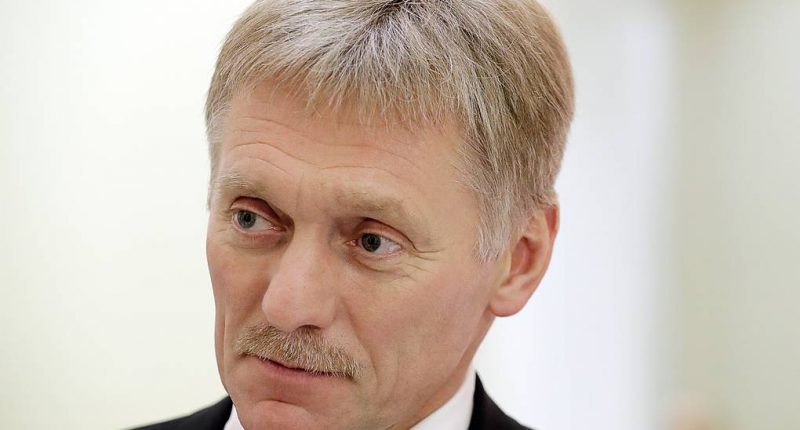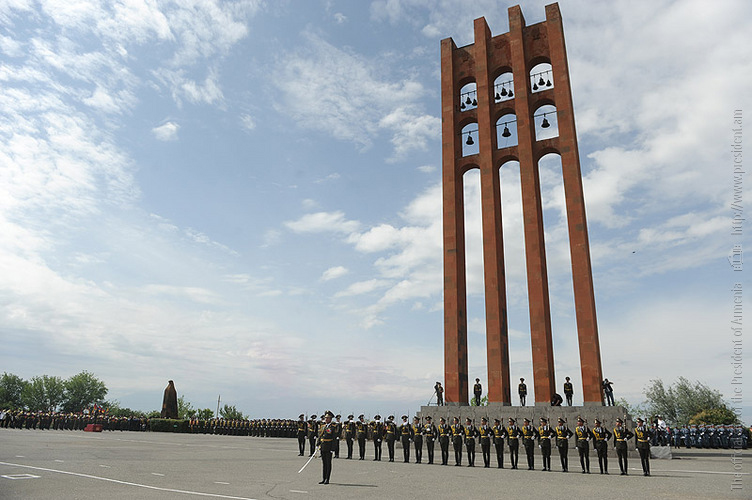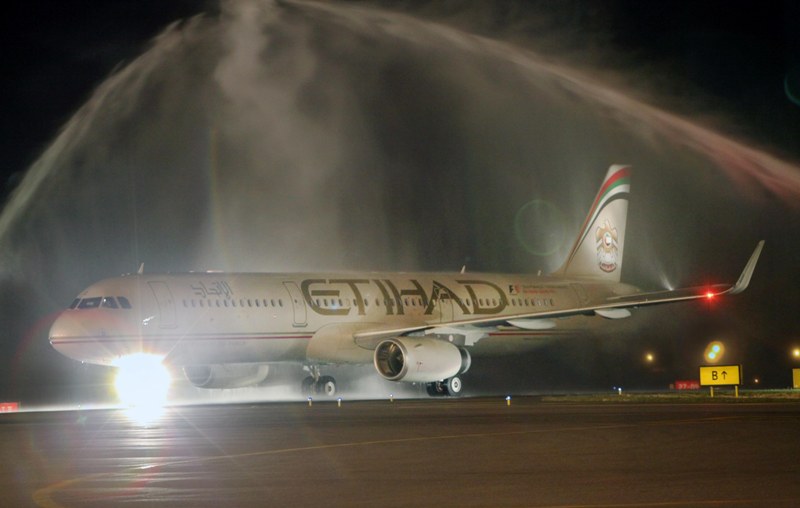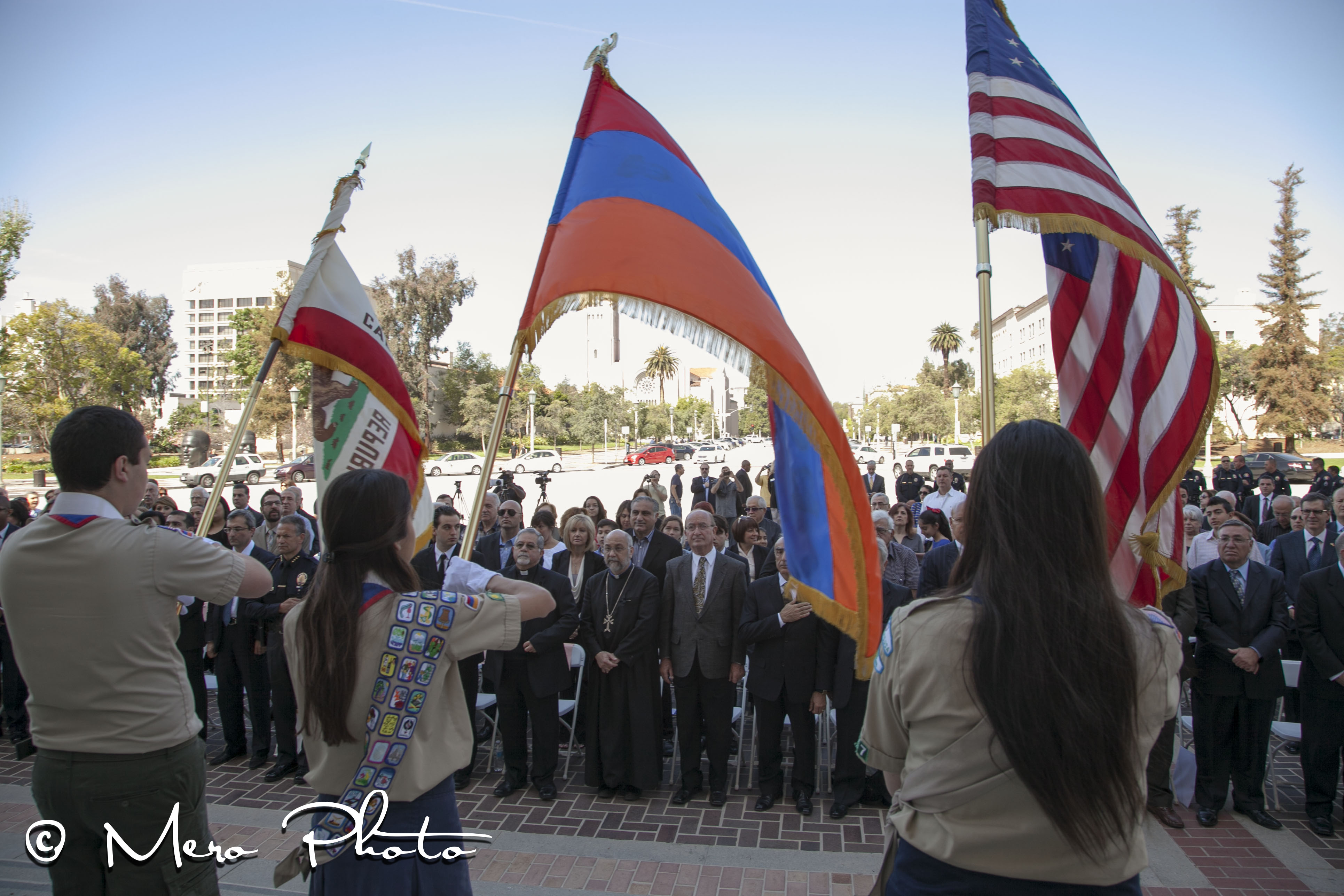MOSCOW — Russia believes that an Armenian-Azerbaijani settlement can be reached only by implementing the 2020 ceasefire agreement brokered by Moscow, a Kremlin spokesman said on Tuesday.
Dmitry Peskov’s remarks came a day after the foreign ministers of Armenia and Azerbaijan sat down in Washington for what United States officials expect to be marathon talks to hammer out a deal to normalize relations between the two countries at loggerheads over Nagorno-Karabakh.
Russia brokered a ceasefire agreement that stopped a deadly six-week war between Armenia and Azerbaijan over the mostly ethnic Armenian-populated region in November 2020.
The deal brought about 2,000 Russian peacekeepers to Nagorno-Karabakh to protect some 120,000 Armenians living there and ensure their free movement along a five-kilometer-wide strip of land that connects Nagorno-Karabakh with Armenia and is known as the Lachin Corridor.
Azerbaijan set up a checkpoint on the corridor on April 23, tightening the effective blockade of Nagorno-Karabakh and drawing accusations from Yerevan and Stepanakert that it violates the terms of the ceasefire agreement.
Authorities in both Armenia and Nagorno-Karabakh urged Russian peacekeepers to “live up to their commitments” under the ceasefire agreement and achieve the removal of the Azerbaijani roadblock. Russia said it continued to negotiate with Azerbaijani authorities regarding the matter, having described Baku’s “unilateral actions” in the Lachin Corridor as unacceptable.
In his remarks Peskov, a spokesman for Russian President Vladimir Putin, said that assistance in resolving the situation between Armenia and Azerbaijan could be welcomed, “but only on the basis of trilateral agreements concluded together with the Russian Federation.”
“There is no alternative to these agreements,” he said, as quoted by Russian media.
“The resolution of the existing problems between the two countries and possible development of some joint actions and steps aimed at reducing tensions in the region are primarily possible on the basis of the tripartite documents that were signed together with Russia. So far, there has been no other legal framework that would contributed to the settlement. Thus, so far these tripartite documents have absolutely no alternative,” the Kremlin spokesman said.
Commenting on the meeting of Foreign Minister Ararat Mirzoyan, of Armenia, and Foreign Minister Jeyhun Bayramov, of Azerbaijan, hosted by U.S. Secretary of State Antony Blinken in Washington, Peskov said: “Of course, any assistance that can promote a settlement on this basis [tripartite documents] is welcomed. But we also know that there are various attempts that blur the basis for a settlement, which in the future may not give a result. Let’s hope that in this case we are talking about the first case.”
Officials in Washington believe that peace is possible to achieve between Armenia and Azerbaijan and stress the importance of direct dialogue between the two countries.










